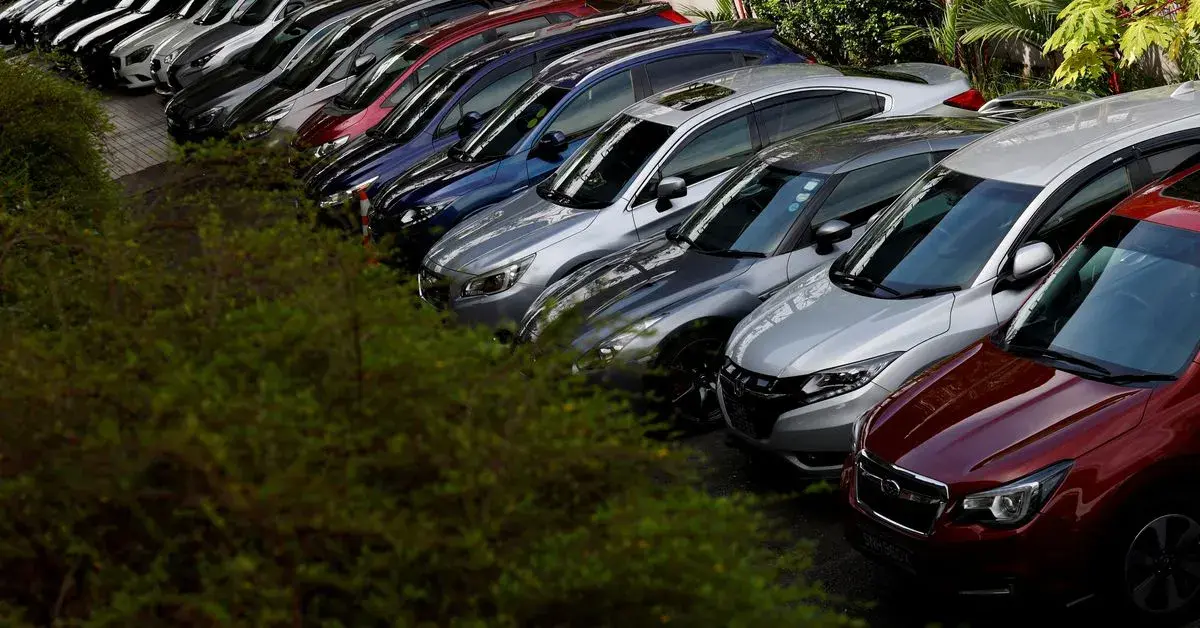
Good. Fuck cars.

Is this news? Singapore is a city of 6 million on an island that is only 45km across at its widest point.

NYC is a smaller geographic city (municipal boundaries - 5 boros) and has 2 million more residents. Try implementing this there for a tenth of the price and see if there’s riots at worst, and every elected official losing their next election at best.

Your math is off somewhere. Wikipedia claims that NYC has 302 square miles of land, while Singapore has 283.
This article estimates that the cost of owning a car in NYC is $3000-$5000 per month. So, you pay for the privilege, perhaps not as much up front.
But NYC is surrounded by places you can drive to. Singapore is not. The mainland city of Johor Bahru is a relatively poor city of only 500K people, and beyond that it’s farmland until you get to the Malaysian captial, more than 4 hours away. So I wouldn’t expect the two cities to have the same preferences for car ownership in any case.

I get it though, you really don’t need a car to get to maybe 95% of the country. I wonder if people who need to haul stuff around for a living get any incentives.

Not a resident but my partner is from SG. One of the reasons I often hear is that families(mom, dad, kids, grandparents) like to travel together, and the elderly are not always mobile enough for public transport. Public transport is really fantastic, but it doesn’t cover every single need.
And of course it’s a status symbol, some feel the need to show they’ve got the wealth to own a car.
Again, I hear these things second hand and am colored by my partner’s beliefs :) Maybe a SG resident has a better (or different) explanation.
edit:
In my eagerness to share, I realize this doesn’t really answer your question. Sorry about that :)
Nah you’re good. I was actually thinking of a similar scenario, like for musicians who need to lug their gear around. They don’t exactly fit into the category of a business that transports goods, but they can’t exactly walk, ride a bus, then a train, with all that gear in tow. I’ve been to SG several times myself and I love how easy it is to get around, as someone who prefers urban living.

My mother was born in Singapore and we’ve been to visit many times. There are a lot of taxis, and they are quite cheap. As a tourist it was cheaper to take a taxi than public transit when we were a group of 3 or 4 people. 2 people was pretty close either way. I’m sure public transit is cheaper when you’re a full time resident, but my grandparents just use taxis all the time due to their mobility issues.

It’s interesting you chose to abbreviate Singapore as Sin Gapore instead of Singa Pore.

It’s become a habit, that’s how we always abbreviate it.
You can also pronounce it as SinJapore, so I guess that’s why? I don’t know, I just follow my partner’s example :)
edit:
Official UN/LOCODE is also SG, so I guess that settles it.
Too late. It’s now my head cannon that Singapore means Sin City now.

the elderly are not always mobile enough for public transport
They should just do what Japanese elderly people do and use the (free) ambulances as taxis!

There’s a special category for Goods Vehicles and Buses, which rose to SGD 85900, I’d assume those vehicles are registered under businesses they own, and probably are counted as business expenses that might be tax deductible

You don’t need a car in Singapore. Very good public transport and affordable taxis.

How are taxis affordable if cars are so expensive?

Presumably because they don’t apply to taxis. Singapore definitely has a licensing system, don’t ask me for details.

Taxis in NYC have medallions, that are significantly more than $100k, and that makes the scarcity of taxis just enough that they are in demand but rarely unused.

Taxis in NYC have medallions, that are significantly more than $100k, and that makes the scarcity of taxis just enough that they are in demand but rarely unused.
🤖 I’m a bot that provides automatic summaries for articles:
Click here to see the summary
SINGAPORE, Oct 4 (Reuters) - To own a car in Singapore, a buyer must bid for a certificate that now costs $106,000, equivalent to four Toyota Camry Hybrids in the U.S., as a post-pandemic recovery has driven up the cost of the city-state’s vehicle quota system to all-time highs.
Singapore has a 10-year “certificate of entitlement” (COE) system, introduced in 1990, to control the number of vehicles in the small country, which is home to 5.9 million people and can be driven across in less than an hour.
In 2020, when fewer people in Singapore were driving, the price of COEs dropped to about S$30,000; a post-COVID increase in economic activity has led to more car purchases while the total number of vehicles on the road is capped at about 950,000.
The skyrocketing price puts cars firmly out of reach of most middle-class Singaporeans, putting a dent in what sociologist Tan Ern Ser said was the “Singapore Dream” of upward social mobility - having cash, a condominium and a car.
Singaporeans have been battered by persistent inflation and a slowing economy, and some are selling the cars they bought when COE prices were low to make a profit.
Jason Guan, 40, an insurance agent and father of two, said he bought his first car, a Toyota Rush, for S$65,000 in 2008, including the price of the COE.
Saved 43% of original text.


